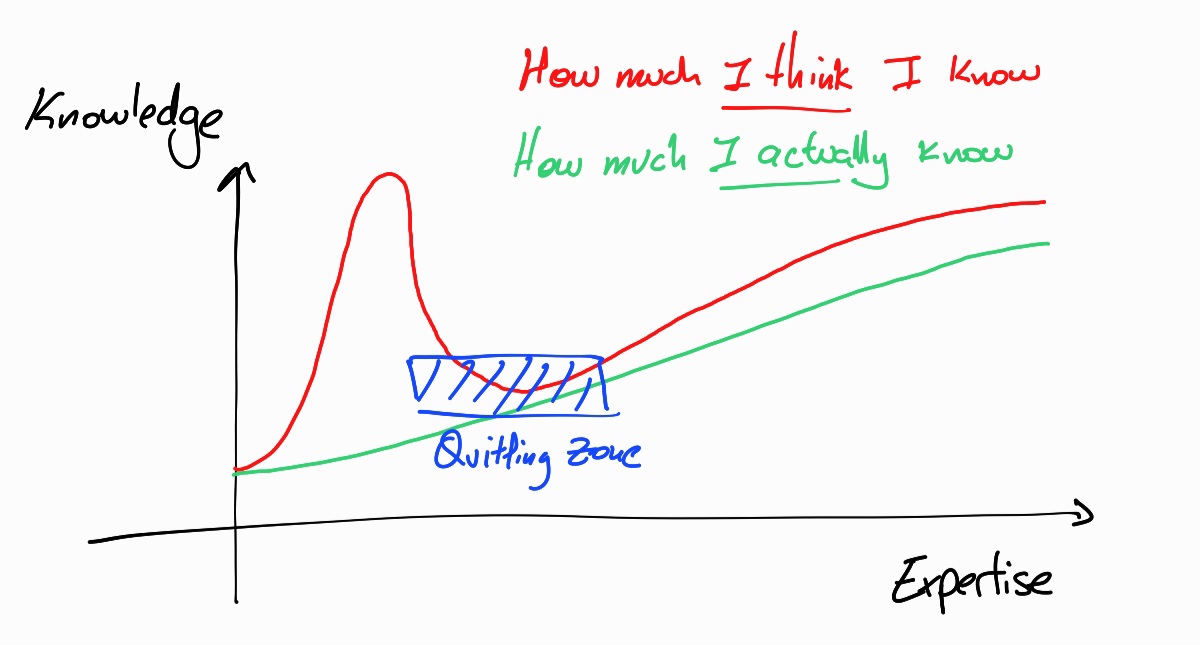
Let’s be honest, we all imagined ourselves excelling in our personal projects: surfing great waves, charming friends with our guitar, or simply losing those extra five kilos. Yet, more often than not, we end up abandoning them. Why is that? Isn’t the outcome worth the effort?
I’ve started and stopped more projects than I would like to admit. Besides feeling disappointed about it, I realized what went wrong:
- Losing motivation after reaching conscious incompetence
- Not being comfortable with discomfort
- Having a plan B
Let’s break them down.
Imagine you want to learn drawing. You sign up for an introductory course. During these lessons, you learn insights, basic techniques and, most importantly, you start to produce drafts. Within weeks, your drawing skills improve noticeably, to the point where you receive compliments from your classmates and teacher. You feel confident and motivated.
After the course, you continue to practice in your spare time. More weeks go by, and you start to feel that progress is slowing down. Even worse, some days you realize that a cat you drew a few days ago looked better than today’s. What is going on?
What happened is that you are reaching conscious incompetence. By knowing more about a subject, your brain is now able to distinguish quality strokes as well as subtle flaws. Because you are aware of the importance of shadows, you have been fine-tuning the portrait. The more you try, the more you fail. You can spot the problem, but fixing it seems out of reach. This is getting frustrating, and your motivation begins to fade.
A few more weeks go by, and your practice sessions become less frequent. Each time you sit down, the pressure to perform feels overwhelming. Whenever you face a blank page, you are scared of producing something imperfect. You are not enjoying it as much as the first week. Discomfort settles in as your companion. And then, one day, a thought comes to you: “If I am not enjoying this anymore, why should I continue?”
This seems to be a perfect solution: finally, you can stop the suffering, and even better, you will have time to take the pottery class that your friends are talking about. This is the plan B effect. You’ve given yourself an easy way out, a path to avoid discomfort.
“It’s just a hobby anyway,” you think. But, you see, the problem is that this cycle will continue. The moment you’re aware of the difficulty, discomfort creeps in. The consequence of having a weak mindset is to abandon. Probably nothing will happen if you stop drawing. However, you will be stuck in your little bubble—your comfort zone—forever.
Recently, I read a quote by George Addair that says: “Everything you’ve ever wanted is on the other side of fear.” I love it. Although keep in mind that fear is not only present before the journey; the scariest part is awaiting you during the process. Only by going down will you appreciate the highs. Train your brain to shut up. Don’t give yourself a plan B. Keep pushing against the wind. Trust me, it’s worth it—you’ll be proud of yourself.